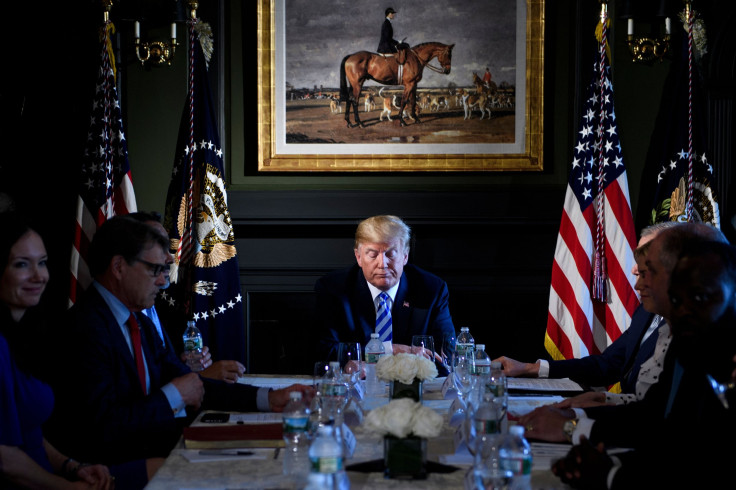Trump Won't Endorse Prison Reform Bill Prior To Midterm Elections

President Donald Trump decided Thursday he will not endorse a prison and sentencing reform bill that was crafted by Republican leaders and his senior advisor and son-in-law Jared Kushner, reports said.
The decision on the bipartisan bill came after a closed-door White House meeting with Attorney General Jeff Sessions, Senate Judiciary Committee Chairman Chuck Grassley and Kushner on Thursday, officials told media outlets.
Encouraged by the leadership shown 2day by @realDonaldTrump to make prison & sentencing reform a priority soon after the election. Americans strongly support these fixes but previous administrations haven’t been able to deliver. I believe this one will
— ChuckGrassley (@ChuckGrassley) August 23, 2018
According to reports, Trump didn’t want to promote the bill at the moment as it was too difficult to politically endorse it before the November midterm elections. Without Trump’s support, the bill has minimum chance of being passed before the midterms.
"Trump said he opposes the idea of letting opioid traffickers get early release to home confinement or halfway houses, and he opposes reducing the mandatory minimum sentences for those offenses," an official familiar with the situation told the Hill.
The Department of Justice welcomed the move.
“We’re pleased the president agreed that we shouldn’t support criminal justice reform that would reduce sentences, put drug traffickers back on our streets, and undermine our law enforcement officers who are working night and day to reduce violent crime and drug trafficking in the middle of an opioid crisis,” Justice Department spokeswoman Sarah Isgur Flores said.
77% of those in prisons have been victims of family or sexual violence, @actionstation's @laura_oc_rapira told us. Here are excerpts of our discussion with her & Justice Minister @AndrewLittleMP on prison reform. pic.twitter.com/ikKvufSzpl
— Morning Report (@NZMorningReport) August 23, 2018
However, some, like Koch network co-chairman and Koch Industries general counsel Mark Holden, were disappointed by the decision. The network officials have worked closely alongside Kushner to promote criminal justice reform — a top agenda item for the network.
“This news is a major disappointment to the overwhelming majority of Americans who care about increasing public safety, and want Washington to take action," Holden told the Hill. "It’s sad that members of both parties would rather play politics than work together to advance meaningful criminal justice reforms that we know work."
Kushner has been pushing for the bill — that aimed at reducing mandatory minimum sentences and shrinking the size of the federal prison population — for some time. The bill received bipartisan support from many key senators like Senate Judiciary Committee Chairman Chuck Grassley and Sen. Dick Durbin.
The bill, passed by the U.S. House in May, would give $50 million to the Bureau of Prisons each year for the next five years. The money will be used to fund education, job skills training, drug treatment and society re-entry programs for the prisoners. The inmates would also be able to accumulate credits through various programs and serve a part of their sentence in halfway houses or home confinement.
In a separate White House meeting earlier Thursday, Trump spoke to Sen. Tom Cotton, who starkly opposed the bill. The president told Cotton he didn’t want drug dealers out early from prison, reports said.
“I think he is receptive to some parts or aspects of the sentencing reform being fused on the prison reform,” Sen. Tim Scott said. “I think he is sympathetic to first-time offenders. I think he’s sympathetic to nonviolent offenders. I think he wants the right sentence for the crime, and I think he is not sympathetic to fentanyl folks, those who sell fentanyl.”
I do not think this is what prison reform advocates had in mind. https://t.co/AUKwNcbcwp
— Blake Hounshell (@blakehounshell) August 23, 2018
The bill was sternly opposed by many including Sessions and Cottons. Earlier this year, Sessions had said the bill "risks putting the very worst criminals back into our communities."
“The president remains committed to meaningful prison reform and will continue working with the Senate on their proposed additions to the bill,” deputy White House press secretary Hogan Gidley said. “The administration remains focused on reducing crime, keeping communities safe and saving taxpayer dollars.”
© Copyright IBTimes 2025. All rights reserved.





















